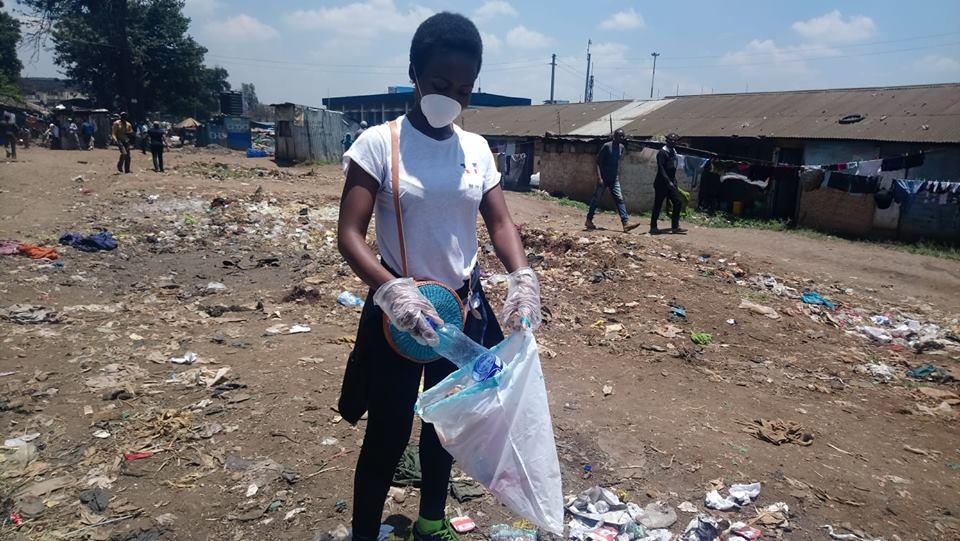13 April 2021, Durban — Greenpeace Africa and Break Free From Plastic [1] are urging South Africans to join thousands of others in commenting on new regulations to address the nation’s plastic pollution crisis.
The anti-single-use plastic coalition is calling for the Department of Environment, Forestry and Fisheries (DEFF) Director-General Anben Pillay to adopt stricter measures to cut down production of single-use plastic on top of amendments already proposed. Over the weekend, 2,000 people have made submissions to the department via the coalition’s online form, which lets people send emails directly to the department.
“Plastic is a threat to our health. Research repeatedly shows the health of the environment is closely linked to human health. In the context of the current pandemic, it has never been more important to put in place measures to prevent further threats to our safety,” said Greenpeace Africa Pan-African Plastic Project Lead, Angelo Louw.
“Citizen participation in our democracy extends beyond the voting polls. The coalition’s online platform gives South Africans the opportunity to let the government know that it cannot afford to stay complacent, especially when 35 other African countries are leading the way in this global plastic crisis,” Louw added.
A recent United Nations report found that underprivileged communities around the world were disproportionately impacted by the environmental injustice caused by plastic pollution, including by its production and disposal.
Break Free From Plastic is calling for measures which will ensure greater accountability for companies who manufacture and sell plastic products. The measures should tackle the plastic pollution crisis at every stage of its lifespan: from the source through extraction of fossil fuels, to discarding it in the environment, to the products’ end-of-life management.
Extending producer responsibility is part of the solutions in the fight against plastic pollution. To be efficient, this principle must be accompanied by measures aimed at reducing plastic production at its source and increasing the market share of reusable packaging.
Break Free From Plastic Regional Coordinator Niven Reddy said, “We need to ban problematic and non-essential single-use plastics, ensuring greater transparency in the recycling chain, and encouraging innovation through the implementation of an extended producer responsibility principle that includes reduction targets, and promotion of reuse and refill models.”
South Africa introduced a levy on plastic bags in 2004, along with a ban on thin plastic bags. Since then, little action has been taken to address plastic pollution in the country. Floods in Durban in 2019 caused Durban harbour to be inundated with plastic waste.
“The plastic industry continues to capitalise on ‘false solutions’ to the plastic pollution crisis and promote recycling as the sole solution, we know that this is not enough. We call on Pillay to apply meaningful measures that stop unnecessary plastic production at the source, long before it enters our lives,” ended Reddy.
ENDS
Notes to the Editor
[1] Break Free From Plastic is a global anti-single-use plastic coalition. Its online form to make submissions to DEFF, calling for stricter plastic regulations, can be found here.
Other research has found microplastics present in South Africa’s tap water and in sea salt samples from Senegal. An estimated 70 percent of cattle and sheep deaths are caused by plastic bag ingestion in the capital of Mauritania. Plastic pollution has made its way to the most remote waters, with microplastics showing up in snow samples from the Antarctic.
Contact details
For Greenpeace Africa: Chris Vlavianos, Communications Officer, +2779 883 7036, [email protected]
For Break Free From Plastic: Tsepang Molefe, Media, Information and Publications Campaign Manager, [email protected]
 Get Involved
Get Involved
